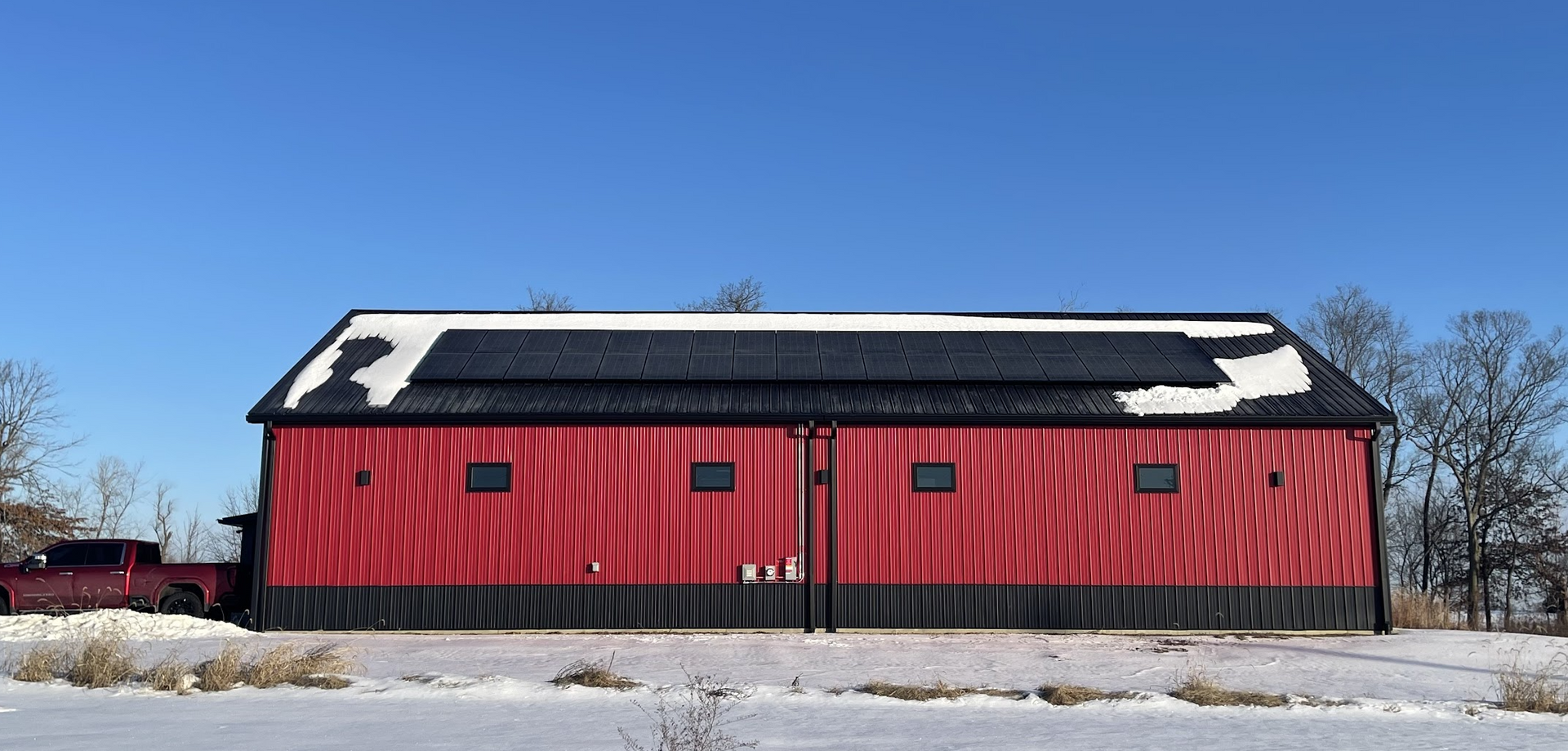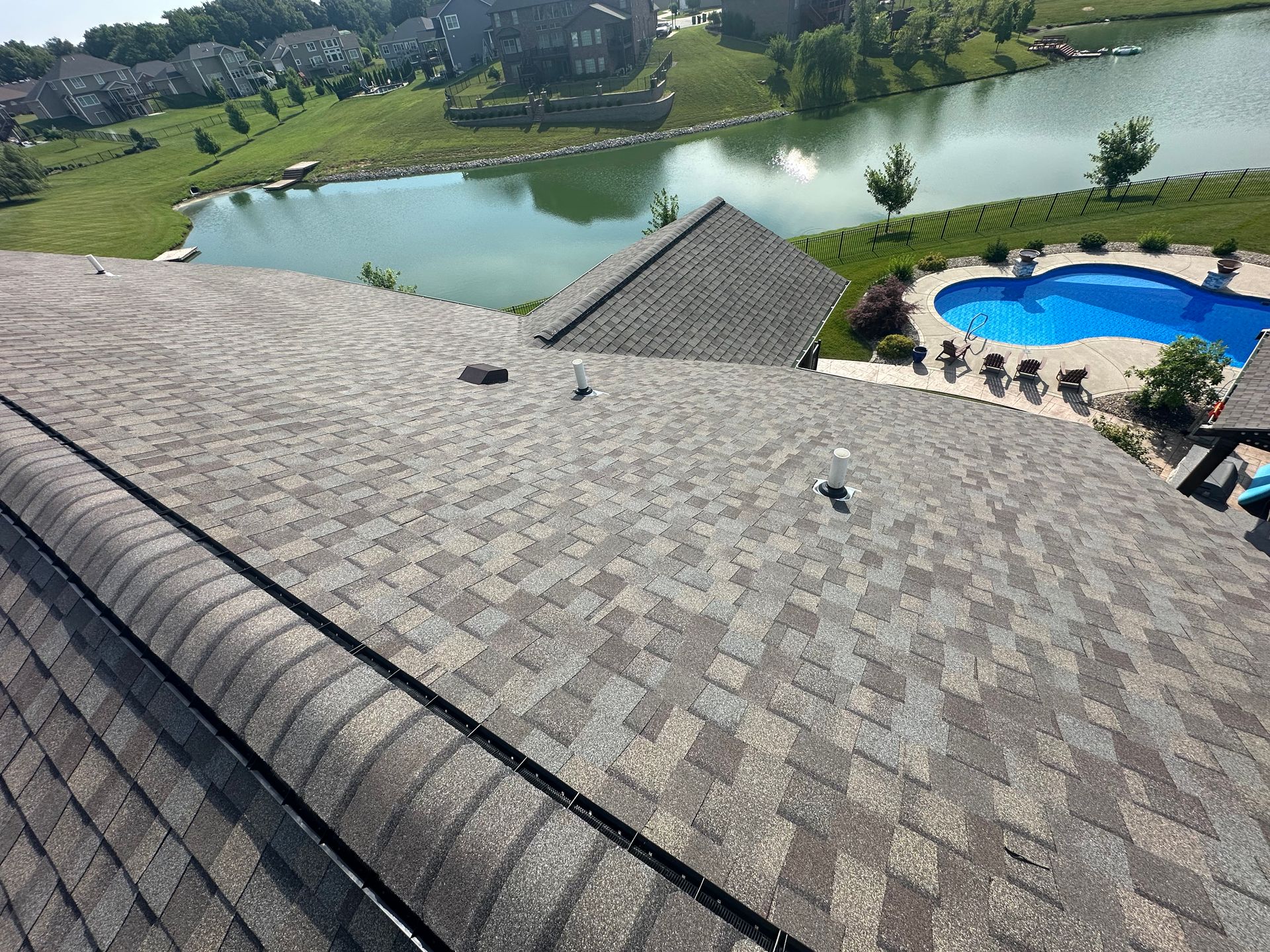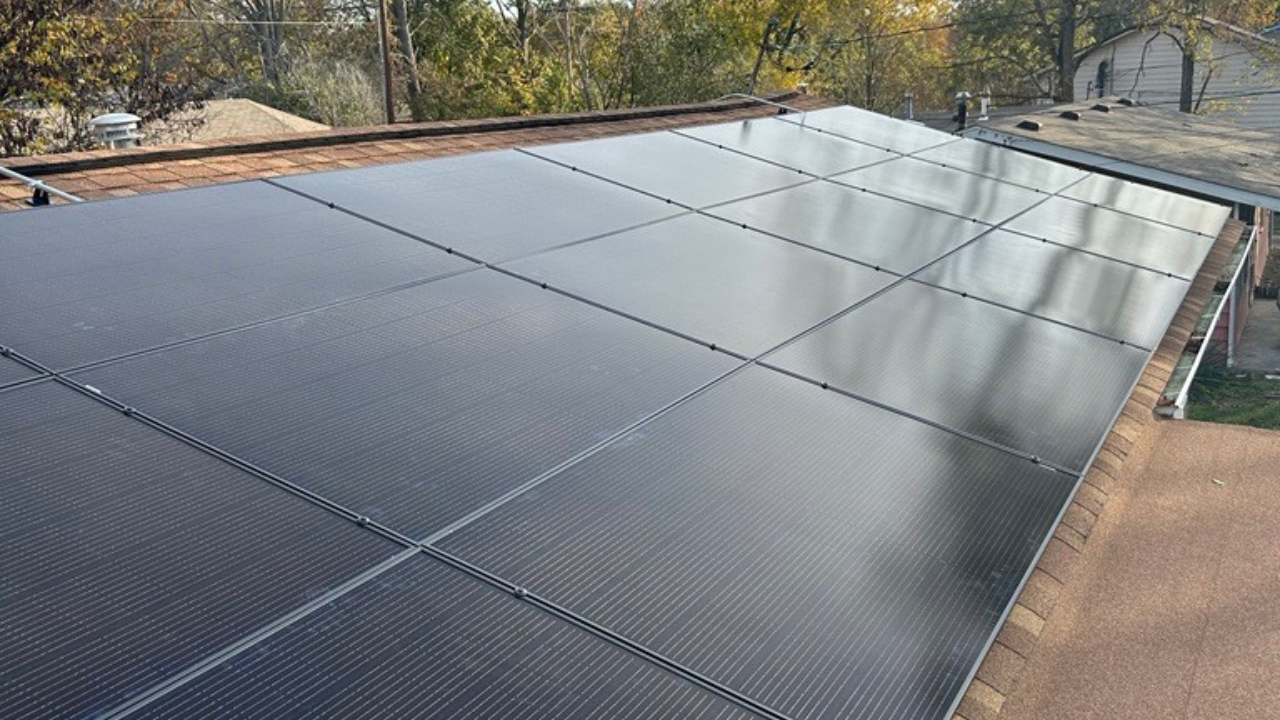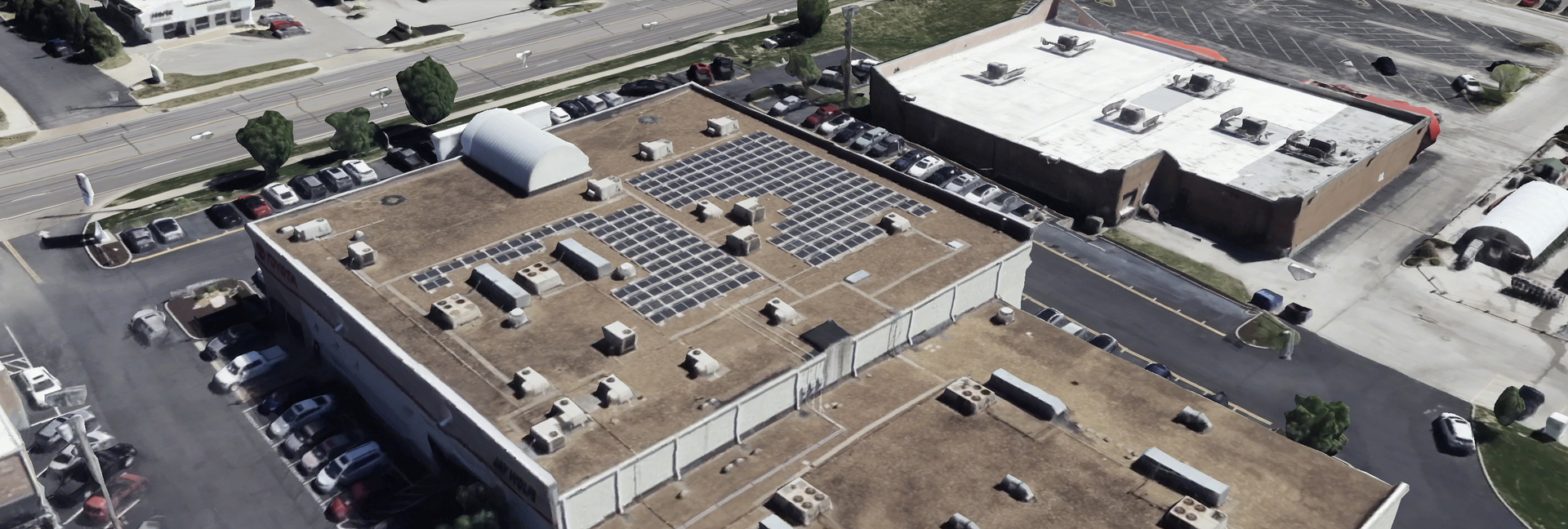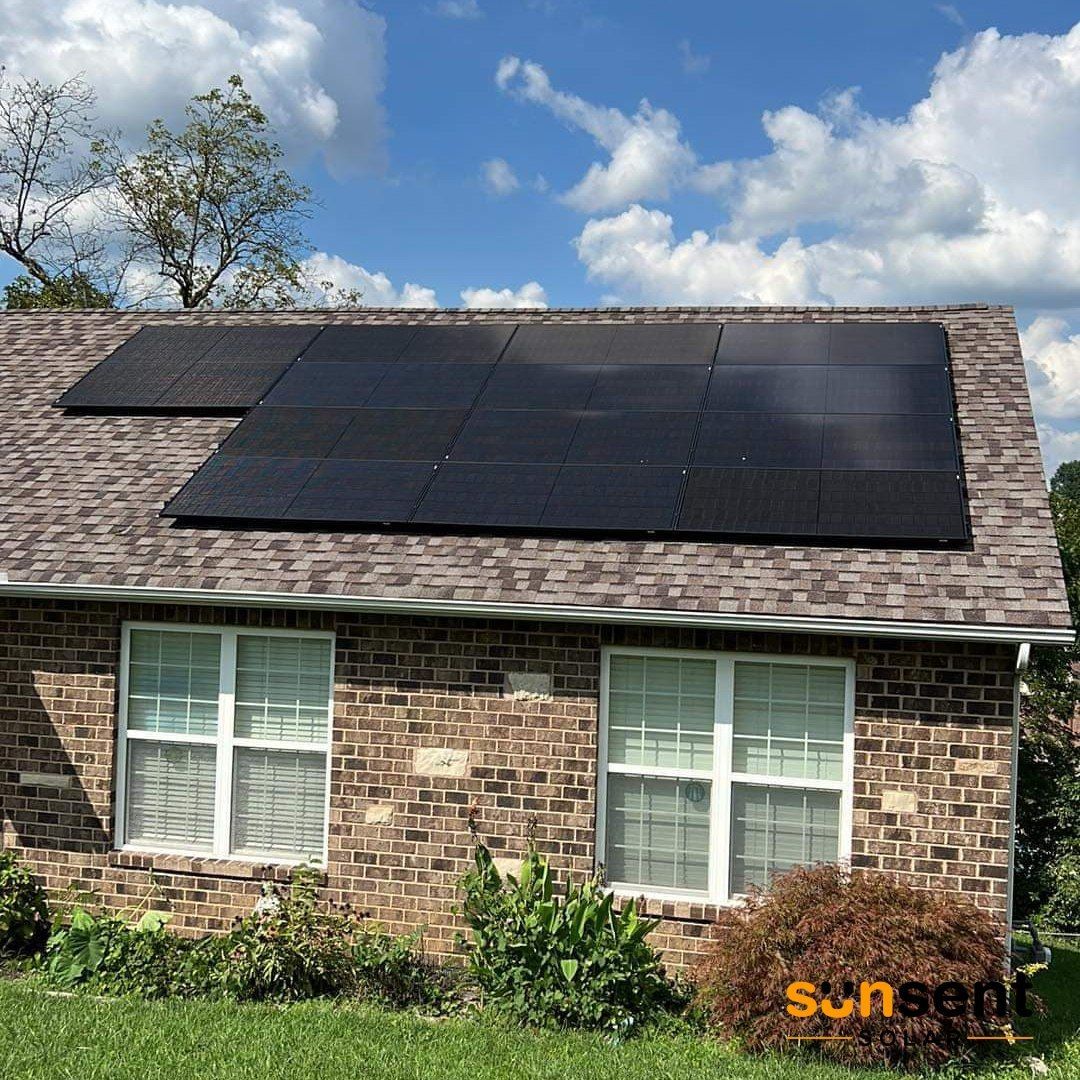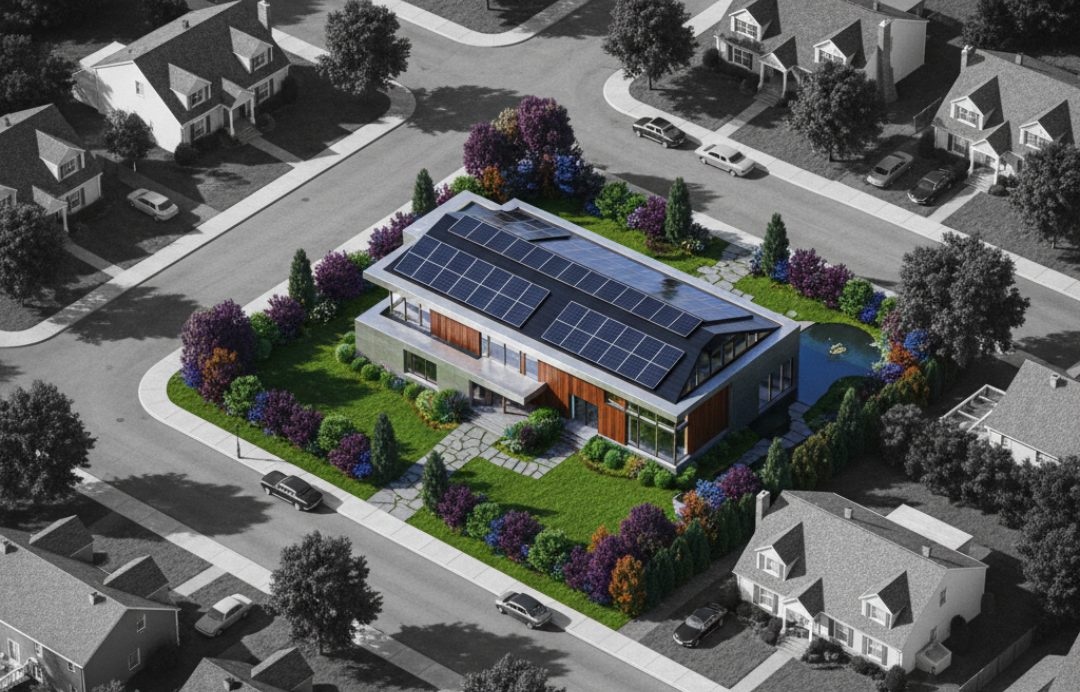Why Do People Go Solar?
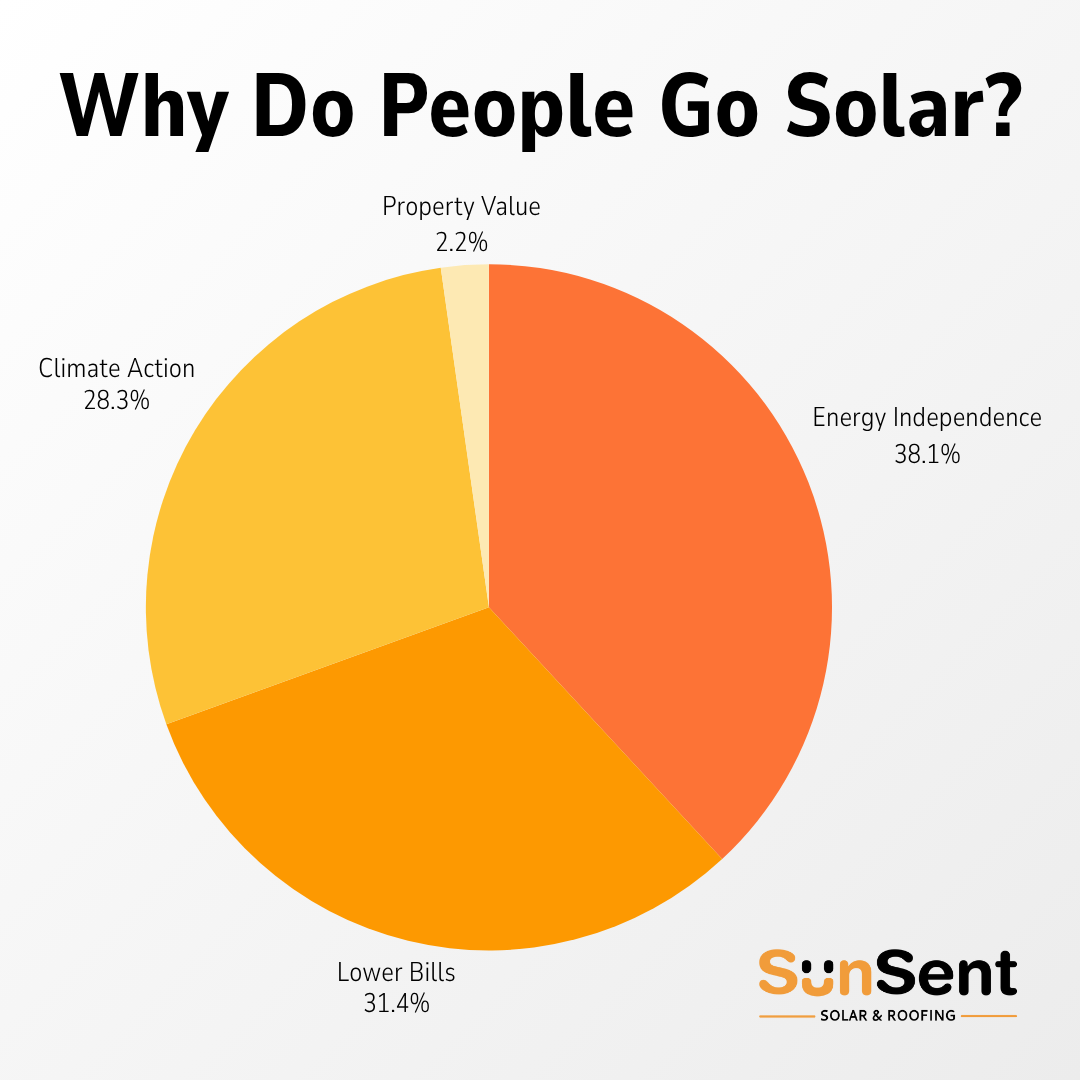
A recent survey showed a surprising trend: the primary driver for many new solar owners isn't just about saving money but about how attractive energy independence is in a time when bills are rising and the grid is failing more often.
While those motivations are powerful, for homeowners still on the fence, the most compelling proof lies in the verifiable, number-heavy success stories of those who have already made the switch. The data is clear: going solar today is a strategic financial and lifestyle decision that works.
Here is the definitive, numbers-backed argument for why you should join the millions of Americans who are choosing solar now.
1. The Financial Freedom: Massive Savings for Decades
First and foremost, the financial reality of solar is the foundation that makes it a smart investment. Your neighbors who have gone solar are locking in fixed energy costs and watching their savings grow.
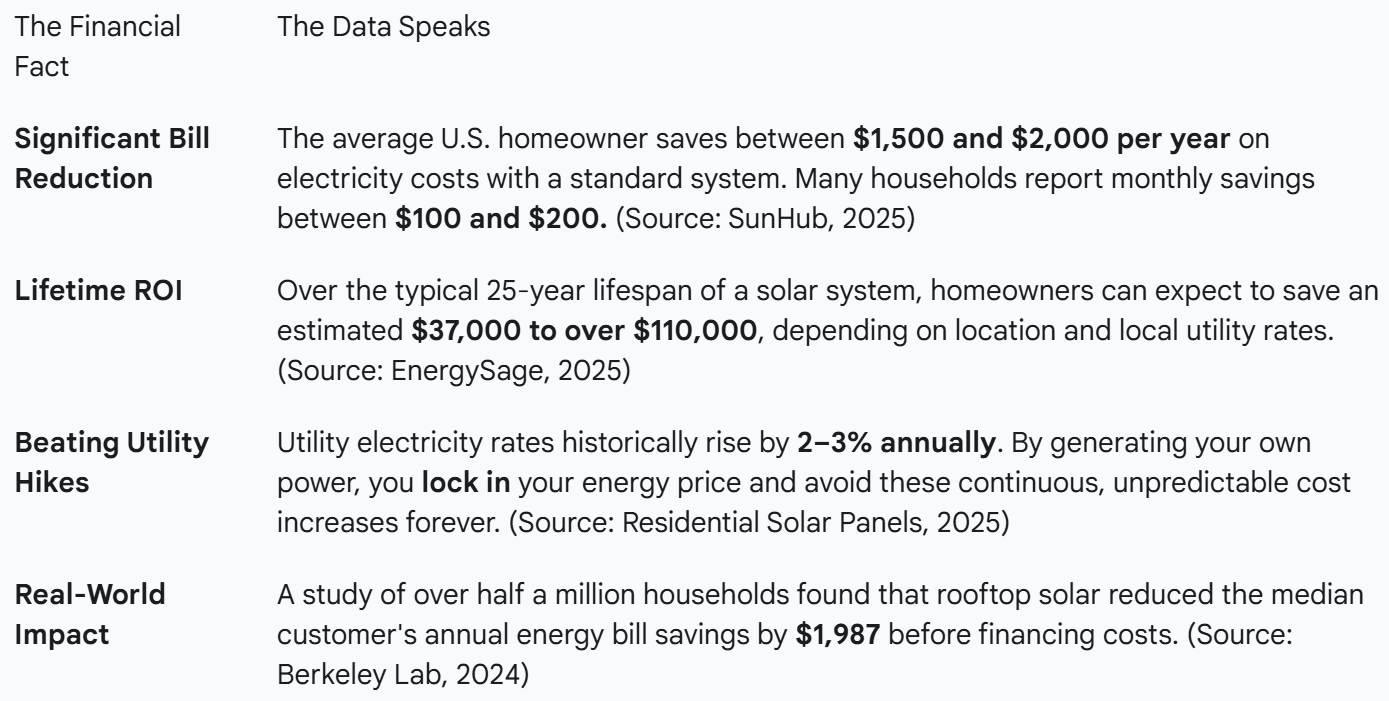
2. Unlocking Hidden Home Value (And Selling Faster)
The survey noted that only 2.33% of respondents chose solar for improved resale value. Yet, real estate data shows this is one of the most significant, guaranteed financial returns of solar ownership. Buyers are willing to pay a premium for a home with pre-installed energy security.
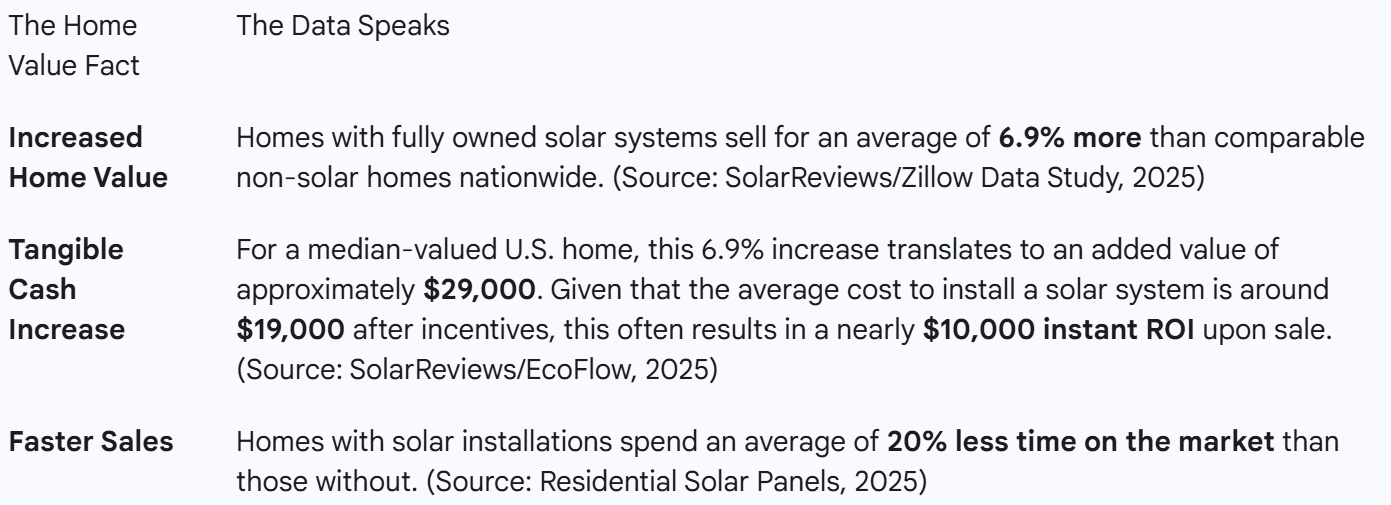
In today's challenging real estate environment, a paid-for solar system is not a luxury—it's a high-value, sought-after upgrade that differentiates your property and attracts premium offers.
3. The Demand for Independence and Resilience
The top reason cited in the survey—Energy independence and less reliance on the grid—is becoming a national priority. Grid instability, extreme weather events, and an aging infrastructure have made generating your own power essential for home security.
- Security with Storage: While solar panels reduce your reliance on the grid, pairing your system with a home solar battery allows you to store the power you generate. This provides true energy resilience, keeping your lights on, refrigerator running, and devices charged when the rest of the neighborhood is dark during a power outage.
- The Trend is Unstoppable: Residential solar is one of the fastest-growing energy sources in the US, with the number of systems growing by an average of 37% per year since the federal tax credit was introduced in 2005. (Source: USAFacts, 2022)
Act Now: Seize Your Opportunity Before It Changes
While the survey respondents put the environment and independence first, every single motivation is strengthened by the financial structure of solar today.
- The 30% Federal Solar Investment Tax Credit (ITC) is the single greatest incentive to go solar. It directly reduces the cost of your system by 30%, which is the key to achieving the maximum long-term savings and property value increase listed above.
- Customer Satisfaction is High: Of homeowners who have installed solar, 85% report being “very satisfied” and 81% are “very likely” to recommend solar to others, proving that the results live up to or exceed expectations. (Source: This Old House Solar Survey, 2025)
Join the millions of homeowners who have secured their energy future and started a path toward massive long-term savings. Don't wait for the tax credit to drop or for the next utility rate hike to hit—the numbers overwhelmingly say that now is your time.
Ready to start generating your own power and claiming your financial independence? Call 636.757.3083 or visit sunsent.com.
Frequently Asked Questions (FAQ)
Q: What is the main benefit of residential solar power?
A: The biggest immediate benefit is reducing or even eliminating your monthly electricity bill. Since the sunlight is free, once the system is installed, the electricity you generate saves you money every month.
Q: How do solar panels actually work?
A: It's simple: Solar panels use special cells to capture sunlight and turn it into DC (Direct Current) electricity. An extra piece of equipment called an inverter then changes it to AC (Alternating Current) electricity, which is what all your home's appliances use.
Q: Will my panels still work on cloudy days or in the winter?
A: Yes! Solar panels don't need direct sunlight; they just need daylight to generate power. They will produce less electricity on cloudy or rainy days, but they won't stop working entirely.
Q: How long do solar panels last?
A: Most modern solar panels come with warranties that guarantee performance for 25 years or more. They are built to be very durable, and many continue to produce power beyond that lifespan.
Q: Is there any financial help available for the initial cost?
A: Yes, in many regions, there are incentives! In the U.S., a significant Federal Solar Tax Credit is often available, which can cover a large percentage of your system's cost. This credit, along with other state or local incentives, can make the final cost much lower... BUT YOU HAVE DAYS TO LOCK IT IN.

